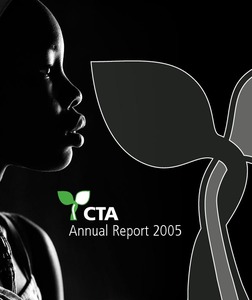Documento de trabajo sobre tenencia de la tierra 6. Este documento ofrece una evaluación del estado de la gobernanza de la tenencia de la tierra y recursos naturales en África occidental, comparando las políticas, legislaciones y prácticas nacionales con los principales criterios y normas de una…
Document de travail sur les régimes fonciers 6. Ce document établit un état des lieux de la gouvernance foncière et des ressources naturelles en Afrique de l’ouest en confrontant les politiques, les législations et les pratiques des Etats avec des principaux standards et critères de bonne…
This report is based on the proceedings of the Technical Consultation on Gender, Property Rights and Livelihoods in the Era of AIDS, organized by FAO in November 2008. It takes stock of where FAO and its partners are in terms of addressing property rights insecurity and provides a proposed…
The present paper – the third in the HIV/AIDS Programme Working Paper Series – is based on field research conducted by two grassroots organizations – CINDI-Kitwe in Zambia and GROOTS Kenya in Kenya to map out and document cases of property grabbing from children, in particular those who…
The present Poverty Reduction Strategy and Action Plan (PRSAP) 2007 provides the framework for poverty focused planning and budgeting in the short to medium term. Poverty reduction will be central to all sectoral development plans and the medium term expenditure framework. Part 3 defines the…
As an organisation, we look forward to ensuring continuity of professional services to our partners and ACP beneficiaries in the coming years as well as continuing with existing endeavours and embracing new opportunities as they may arise.
Ce manuel de formation se concentre essentiellement sur les relations entre les systèmes de savoirs locaux, le rôle assigné à chaque sexe, leurs relations, la conservation et la gestion de la biodiversité agricole, les ressources animales et phytogénétiques ainsi que la sécurité alimentaire. L…
This paper focuses on legal and institutional aspects of children’s property and inheritance rights in Southern and East Africa. Chapter 2 discusses violations of children’s property and inheritance rights and discusses how the spread of HIV/AIDS has contributed to the violations. Chapter 3…
This manual therefore aims to explore the linkages between agrobiodiversity, gender and local knowledge, and to show the relevance of doing so, within the context of research and development. This manual will not equip you with the skills needed to conduct participatory or action research at…
The effect of HIV/AIDS on Africa and the issues it creates for women in African societies, especially unmarried women, is a difficult one that will not soon go away. These two volumes [ The Land and Property Rights of Women and Orphans in the Context of HIV and AIDS : Case Studies from Zimbabwe…
Across rural Africa, land legislation struggles to be properly implemented, and most resource users gain access to land on the basis of local land tenure systems. Although such systems claim to draw their legitimacy from “tradition” and are commonly referred to as “customary” (and for easier…



